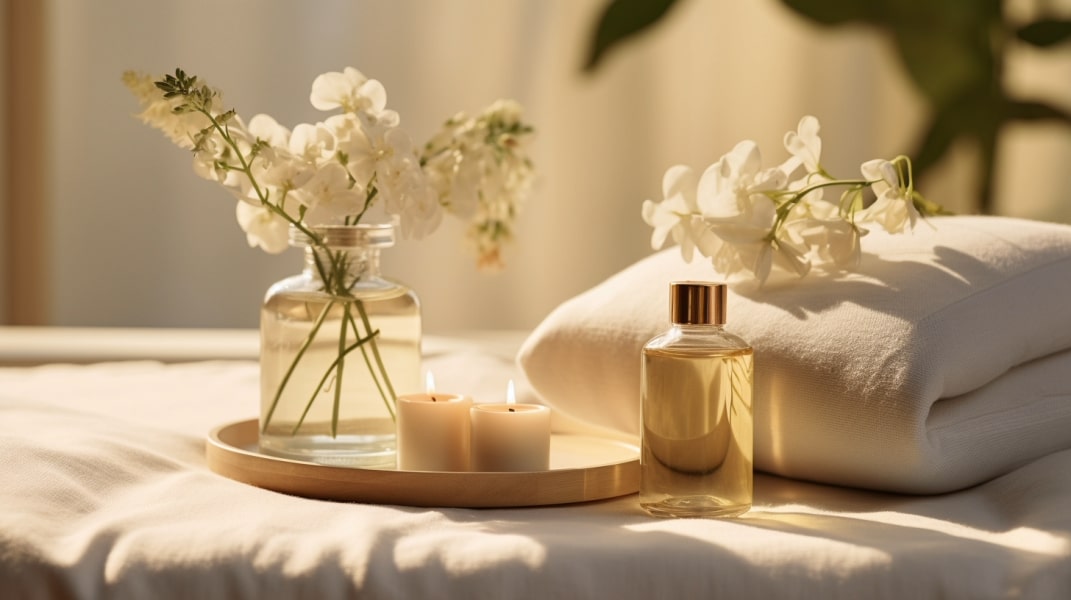In today's fast-paced world, stress and anxiety have become inevitable parts of our lives. Finding ways to unwind and relax is crucial for our overall well-being.
While there are several methods available, one natural and effective solution is the use of essential oils. These potent botanical extracts have been used for centuries for their therapeutic properties. In this article, we will explore the benefits of using essential oils for relaxation and how they can promote a sense of calm and well-being
1. Understanding Essential Oils:
Essential oils are highly concentrated plant extracts, derived from flowers, leaves, stems, and other parts of various plants and trees. Known for their aromatic properties, they contain a range of active compounds that contribute to their therapeutic benefits. When inhaled or applied topically, essential oils can interact with our bodies and minds, promoting relaxation, reducing stress, and improving overall mental health.
2. Benefits of Using Essential Oils for Relaxation:
2.1 Calming Aromatherapy:
Many essential oils, such as lavender, chamomile, and ylang-ylang, have calming properties that can help reduce anxiety and induce deep relaxation. Adding a few drops of these oils to a diffuser or bath can create a soothing atmosphere that promotes a sense of tranquility.
2.2 Stress Relief:
Certain essential oils, like bergamot, clary sage, and frankincense, have stress-reducing properties. These oils can help lower cortisol levels, the hormone responsible for stress, and create a more balanced state of mind.
2.3 Improved Sleep:
Essential oils like lavender and vetiver are renowned for their sleep-enhancing properties. Diffusing these oils in the bedroom or adding a few drops to a pillow can help calm the mind and promote restful sleep.
2.4 Mood Upliftment:
Citrus oils, such as orange and lemon, have energizing and mood-boosting properties. Their fresh and vibrant scents can help uplift the spirits and improve overall emotional well-being.
3. Safe Usage Tips:
To reap the benefits of essential oils while ensuring safety, here are a few tips to keep in mind:
3.1 Dilute Dilute Dilute:
Essential oils are highly concentrated and should always be diluted before use. Follow recommended dilution ratios and use carrier oils like jojoba, almond, or coconut oil to avoid skin irritation.
3.2 Patch Test:
Before applying any essential oil topically, perform a patch test on a small area of skin to check for any adverse reactions.
3.3 Research and Consultation:
Each essential oil has specific properties and potential contraindications. Do your research and consult with a qualified aromatherapist or healthcare professional before using essential oils, especially if you have any underlying health conditions or are pregnant.
4. Popular Essential Oils for Relaxation:
4.1 Lavender:
Known for its calming and soothing properties, lavender oil is a popular choice for relaxation and stress relief.
4.2 Chamomile:
Chamomile oil has a gentle, floral scent and is often used for its relaxing and sleep-inducing effects.
4.3 Frankincense:
This woody and earthy oil has been used for centuries to promote meditation and spirituality while reducing stress and anxiety.
4.4 Ylang-Ylang:
With its delicate floral aroma, ylang-ylang oil is known to help balance emotions, reduce tension, and promote relaxation.
4.5 Bergamot:
Bergamot oil has a citrusy scent and is often used to uplift the mood and relieve stress and anxiety.
Incorporating essential oils into your relaxation routine can be a game-changer when it comes to finding solace and calmness amid the chaos of modern life. These powerful botanical extracts offer a natural and effective solution for reducing stress, promoting relaxation, and improving overall well-being. Whether you choose to diffuse them, apply them topically, or add them to your bath, essential oils can help create a sanctuary of tranquility and peace in your daily life.
